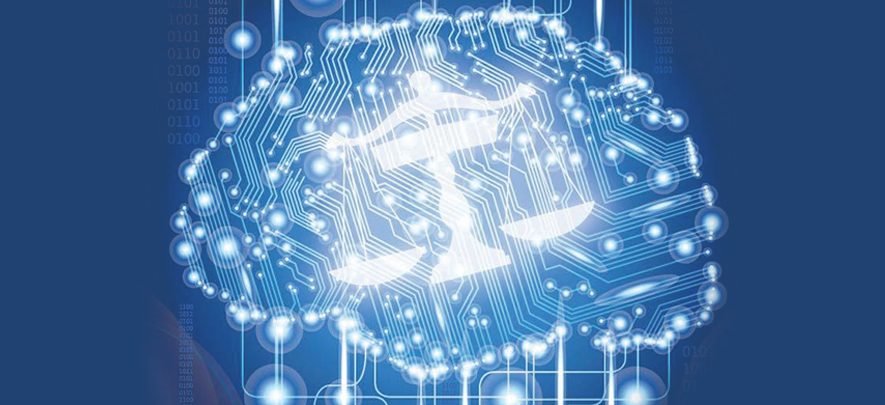A case for Artificial Intelligence

Digital & Technology
353 week ago — 6 min read
Artificial Intelligence (AI) is slowly creeping into most organisations. In retail, AI will have a huge impact, considering the amount of data captured and interpreted to understand customer experience, besides data utilisation in marketing and supply chain. All along, we have been believing that we need to adapt to technology.
The time has come where technology is adapting to human beings. Superfast and super intelligent computers will be a real challenge to human intelligence and decision making. A prime example of this is the IBM Watson, the AI-based supercomputer, that has been successfully tested in medicine, analytics and decision making. Time and again, AI has been proving its ability to challenge human intelligence with near-accurate results within no time, in comparison to the same task being performed by a human.
Understanding AI and ML
AI and Machine Learning (ML) are often used interchangeably, though they are not the same. ML is an application of AI, based around the idea that if provided access to data, machines can teach themselves.
The term AI was first coined by McCarthy in 1956. According to him, with AI, machines can perform tasks that are characteristic of human intelligence. AI includes concepts, planning, understanding language, recognising objects/ sounds, learning and problem solving. Simply put, ML is a way of achieving AI. It is a field of study, which harnesses the principles of computer science and statistics to create statistical models. ML makes predictions about the future, based on past data patterns.
AI is like our brain, making sense of the data and deciding what action to perform. AI is classified into two categories—general and narrow. General AI would have all characteristics of human intelligence, whereas narrow AI demonstrates certain facets of human intelligence. It has the capability to perform tasks only within a particular area.
AI in Legal
Usually, lawyers are believed to be slow in adopting technology-driven changes. However, this mindset is fast changing. In the next 10 years or so, it will not be surprising to find legal professionals adopting AI and breaking age-old stereotypes.
Software will help lawyers by highlight new issues so that when a new case/issue comes, they need not spend time on research, reference or database scanning. The completed research and reference material would directly be sent to their inbox. Super computers will proactively address new issues and suggest solutions without much human intervention, saving considerable time. The results delivered will be superior as no lawyer is able to read all cases, laws, rules and regulations. AI can help in analysing all available reference material in the context, providing the right output depending upon a case’s scope and requirement.
With technology entering the legal profession, the skill, attributes, and knowledge requirement of legal professionals will change, compelling them to adapt quickly and deliver quality output to clients. In the AI regime, a young lawyer will have access to a treasure trove of experience through super intelligent computers, far superior to even to even seasoned lawyers.
In the near future, law schools will have to factor in AI into their syllabus to cope up with the changing reality.
Future possibilities
Today, in-house lawyers may pride themselves on their competency but a time will come when they have to compete with AI and work in collaboration with machines to be recognised as good lawyers. They will have to do away with the traditional mindset and be technology savvy to be able to reap the benefits of AI.
In the legal profession, AI will be primarily used for e-discovery and management of documents, analytics, review and analysis of contracts, interactive legal advice, due diligence and legal research. It is expected to play a pivotal role in decision making, particularly in the matter of court decisions. Today, AI is competing with human intelligence, it will be interesting to see how it replaces human emotions in the coming years.
While AI will certainly make further inroads into the legal profession, experts opine that it will neither replace lawyers/in-house counsel nor affect employment. Instead, it will add value to them. Legal professionals will have more quality time to strategise and attend to clients.
Going forward, an organisation’s IT team will also need to upgrade its technical skills so that they are able to help the in-house counsel make the most of AI. At the same time, in-house counsel will need to quickly embrace the concept of a multi-disciplinary technology team to safeguard business solutions.
To sum up, legal professionals and organisations have to be open to experimenting with AI to harness its potential. AI may play a big role in reducing legal costs and risks, delivering more value to all stakeholders.
Article source: STOrai Magazine
Disclaimer: The views and opinions expressed in this article are those of the author and do not necessarily reflect the views, official policy or position of GlobalLinker.
Network with SMEs mentioned in this article
View STOrai 's profile
Other articles written by STOrai Magazine
The Art & Science of People Pleasing in Retail
13 week ago
Most read this week













Comments (2)
Share this content
Please login or Register to join the discussion